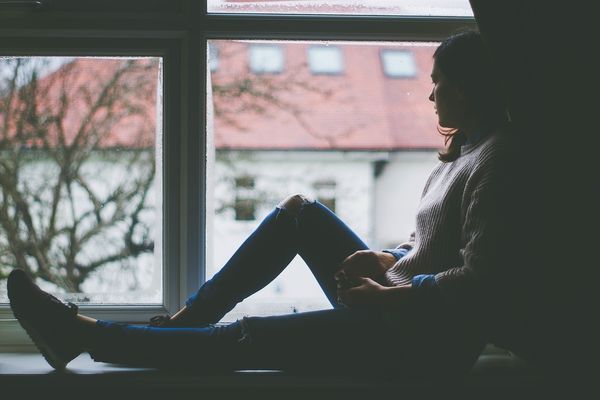With NEDAwareness (National Eating Disorder Awareness) week's recent passing (Feb 25 - Mar 3), it's important to talk about the ways that conversations about mental health are severely lacking in representation. As someone who is recovering from an eating disorder, I am disappointed year after year by NEDAwareness week, not because I disagree with its intent and goals, but because of the ways I see it being promoted, shared, and spread over social media.
There is one type of story that is generally told when it comes to eating disorder awareness: the story of the thin, white, cis-hetero, able-bodied, young woman with anorexia. This remains true despite the fact that people of every age, race, ethnicity, SES, ability, and gender struggle with multitudes of eating disorders. In fact, individuals diagnosed with anorexia make up only a minority percentage of people who struggle with eating disorders.
The biggest reason for this over-representation of one group at the expense of many others is the dual demonization of overweight individuals and marginalized bodies, and the romanticization of underweight bodies as "fragile." Additionally, the behaviors associated with eating disorders such as binge-eating disorder (BED), bulimia, and other specified feeding and eating disorders (OSFED) are framed as shameful or signs of weakness. Purging, bingeing, and laxative abuse are among these behaviors.
Meanwhile, behaviors associated with anorexia and restricting subtype disorders are lauded in mainstream culture. It is considered a sign of strong will and self-control to not eat, exercise obsessively, or strictly track your intake. This perspective creates a narrative that paints anorexia as "good habits taken too far" and all other eating disorders as "failures of self-restraint."
Besides just an overabundance of stories that chronicle extreme weight loss and weight restoration (almost always back to a lower-average weight), the voices telling these stories are by and large voices of those with privilege. This is how we perpetuate the idea that there is a specific type of person who has an eating disorder and why society, as well as professionals, tend to dismiss eating disorders in people who don't fit this description.
Not only does this affect the public perception of eating disorders, but it makes individuals who feel they do not align with the "eating disorder model" more hesitant to speak out and less likely to receive support. POCs, people with disabilities, LGBTQ+ individuals, and everyone who deviates from the "norm" narrative are not being represented in discussions surrounding eating disorders, access to care, and recovery movements.
It is only in the past year or two that I have begun to see more diverse stories being highlighted. It is so crucial that people continue to share and raise these stories up. This is the only way we can begin to break down the stereotypes that exist about who can have an eating disorder and how they should be experiencing it. I am seeing more and more accounts and activists beginning to use their platforms to call attention to marginalized experiences with eating disorders and taking a step back to listen and learn instead of speaking over or speaking for.
Yes, it is important to let everyone tell their story. Yes, you are allowed to talk about your eating disorder if you do happen to fall into the small percentage of people that fit the stereotypical mold. But remember the larger goal of the movement - this is not a time to commemorate or memorialize an eating disorder. This movement is about critically examining how we can encourage recovery in a more widespread way, how we can make treatment and resources accessible, and how we, as a society, can change our behaviors, attitudes, and cultural messages to reduce diet culture, body-shame, and a general encouragement of disordered eating and the thin-ideal.
If you choose to share your experiences with mental health, be conscious of their impact. Is the language you use exclusive or does it assume a singular way to have an eating disorder? Are you acknowledging how privilege has played into your access to treatment or how others have reacted to your eating disorder? Most importantly, remember to keep sharing stories that do not look like yours.



















